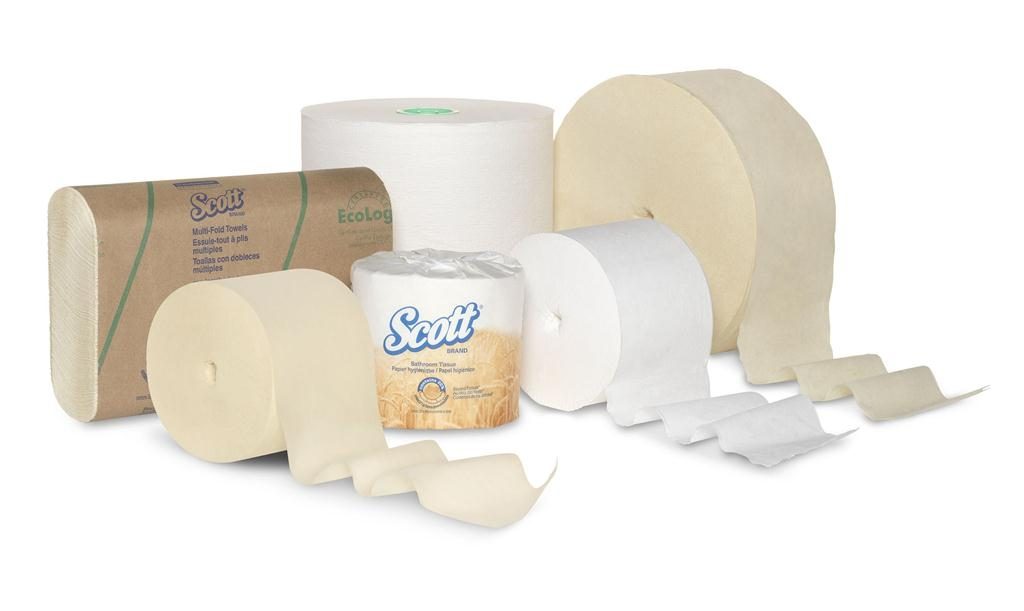
Features
Paper
Research & Innovation
Kimberly-Clark launches products made with wheat straw and bamboo
Kimberly-Clark Professional has begun to incorporate rapidly renewable plant-based fiber, such as wheat straw and bamboo, into Kleenex and Scott brand towel and tissue products.
April 29, 2015 By Pulp & Paper Canada
 Rapidly renewable plant-based fiber
Rapidly renewable plant-based fiber Kimberly-Clark Professional has begun to incorporate rapidly renewable plant-based fiber, such as wheat straw and bamboo, into Kleenex and Scott brand towel and tissue products.
The company is the first major towel and tissue manufacturer in North America to introduce products made with 20% plant fiber in place of tree fiber or recycled fiber. K-C states that these new products required the development of an entirely new supply chain to directly obtain wheat straw from U.S. farmers and the creation of a first-of-its-kind manufacturing process for converting plant fiber into pulp.
“In a resource-constrained, digital world, with fewer sources of recycled fiber, and the need to put less pressure on natural forests, it’s important to continue exploring non-tree fibers,” said Iris V. Schumacher, North American sustainability leader, Kimberly-Clark Professional. “With the GreenHarvest line, Kimberly-Clark is pioneering a new approach to sustainable fiber sourcing and delivering innovative products with the quality and performance customers expect from our trusted brands.”
GreenHarvest offerings include Kleenex hard roll towel and Kleenex Cottonelle coreless standard roll bathroom tissue made with 20% bamboo fiber, and Scott multi-fold towels, standard roll bathroom tissue, coreless JRT Jr. bathroom tissue and coreless standard roll bathroom tissue made with 20% wheat straw fiber.
Bamboo and wheat straw meet the U.S. Green Building Council’s definition of rapidly renewable materials because they can regenerate in less than 10 years. These fibers have shorter harvesting cycles, which reduces the amount of land needed to support demand and takes advantage of abundant plant sources.
Wheat straw is the residue that remains after wheat is harvested. According to K-C, more than 45 million tons of this agricultural byproduct is generated in the U.S. every year, with relatively few beneficial uses. Incorporating these fiber “leftovers” into towel and tissue products helps reduce farmland waste and provides additional income to farmers, by enhancing the value of their crops.
In 2012, Kimberly-Clark Professional piloted the use of products containing non-tree fiber. GreenHarvest products are the next-generation of these products.
Print this page